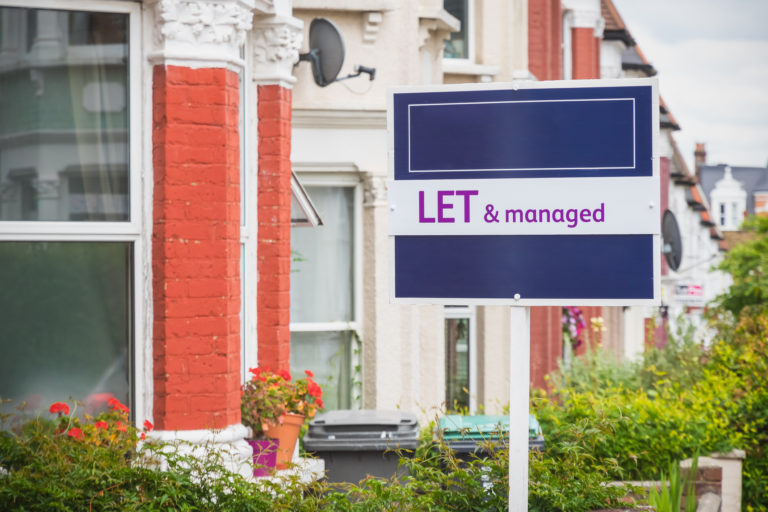Leasehold reform has been a major topic in the UK housing market for a number of years, but it could be a while until homeowners see the effects.
The Leasehold and Freehold Reform Act became law shortly after Prime Minister Rishi Sunak called the general election last month. However, with only around three weeks to go until the country goes to the polls, the new rules are not yet in force.
There have been calls for leasehold reforms in the UK for many years, but the topic has been heavily debated since the ground rent scandal really came to light around 2017, with homeowners reporting unwittingly signing agreements with freeholders that led to ground rent charges sometimes doubling in 10 years.
Other issues raised in relation to leasehold reform have been the difficulties faced by leaseholders to buy the freehold, along with the expense of extending it once it falls below a certain level.
What are the current rules on ground rent?
In 2022, the Leasehold Reform (Ground Rent) Act 2022 came into force, which prohibited ground rent payments on new residential long leases, ie. leases for over 21 years. Any new leasehold residential property will have a ground rent of nil or a peppercorn, meaning that no ground rent payments will be made.
It only impacts new freeholders and leaseholders after the date it came into force though, rather than applying retrospectively to existing ones. Leaseholds that have been extended informally do come under the law though, meaning ground rent can no longer be charged if you negotiate a lease extension.
The new leasehold reform law
The latest update on the leasehold reform situation – in the form of the Leasehold and Freehold Reform Act, is a further piece of legislation that aims to strengthen the rights of leaseholders.
It is important to note that many parts of the new law apply to new leasehold houses, rather than flats, although some parts such as extending leases and buying freeholds can apply to any property type.
Below is a list compiled by the National Residential Landlords Association (NRLA) which offers a rundown of the main changes included in the latest leasehold reform:
- Banning the sale of new leasehold houses so that, other than in exceptional circumstances, every new house in England and Wales will be freehold from the outset.
- Making it easier for leaseholders to extend their lease or buy their freehold, and make standard lease extensions 990 years to reduce the need for repeated extensions.
- Excluding ‘marriage value’ when calculating the premium on lease extensions.
- Standardising the format of service charge demands so leaseholders have greater transparency about what they are being charged.
- Making it easier to access redress by requiring freeholders who manage their property to belong to a redress scheme. Currently only managing agents need to belong to a scheme.
- Removing the requirement to pay the freeholders cost when exercising their enfranchisement rights, making it easier to buy the freehold.
- Setting maximum time limits for providing home buying and selling information, and setting a maximum fee providing this information.
- Giving homeowners on private and mixed tenure estates comprehensive rights of redress, so they receive more information about what charges they pay, and the ability to challenge how reasonable they are.
- Scrapping the presumption that leaseholders pay their freeholders’ legal costs when challenging poor practice.
- Banning ‘opaque and excessive’ buildings insurance commissions for freeholders and managing agents, replacing these with transparent and fair handling fees.
- Removing the requirement for a new leaseholder to have owned their house or flat for two years before they can extend their lease or buy their freehold.
Should I buy a leasehold flat?
New leasehold flats will remain leasehold by default, which is a different outcome than some had anticipated – it had been predicted that the Act would make “commonhold” the default tenure for flats. This means that you own your property as a freehold indefinitely, along with the other flat owners.
According to Money Saving Expert, there is “no reason” not to buy a leasehold flat, provided it is a “good leasehold”. This includes having more than 80 years left on the lease, for example, among other things, while also making sure you are fully aware of any ground rent, service charges or other aspects.
It lists a number of pros that come with investing in a leasehold flat, including not having to deal with the upkeep of communal areas, as this is often something sorted out by the freeholder (but it is important to check how this works when looking at a property).
There are often also terms in your lease that can deal with things like disputes with noisy neighbours, which can be down to the freeholder to take action on. The freeholder should also sort out the buildings insurance, although it is likely you will still have to contribute to this via your service charge.
Leasehold reform from 2025/26
The majority of the new Leasehold and Freehold Reform Act – aside from a minor amendment to the Building Safety Act and provisions around rent charge arrears, says the NRLA – will not come into play until the next government has its feet under the table.
The timing of this will depend on the new government’s priorities, although there is likely to be a good deal of pressure from many in the industry to press ahead with leasehold reform sooner rather than later.
The NRLA notes that “ironing out the details ahead of implementation” of the leasehold reform is likely to be “challenging, particularly around things like calculating capitalisation rates”.
It adds: “Given this, there is likely to further consultation before implementation and leaseholders should probably not expect the Act to apply to them until 2025/26.”










